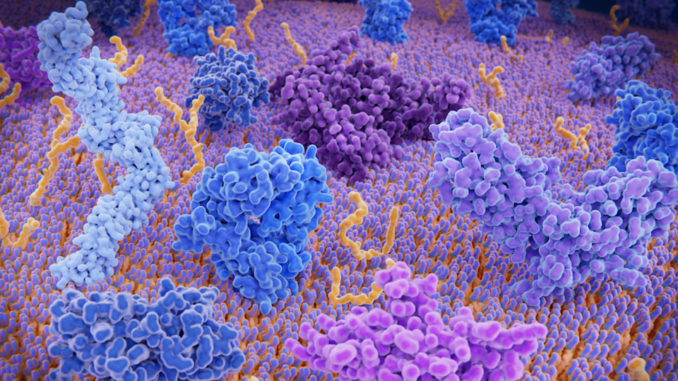
Biomica, an emerging biopharmaceutical company developing innovative microbiome-based therapeutics, and a subsidiary of Evogene Ltd. (NASDAQ: EVGN) (TASE: EVGN), announced positive preliminary results from recently completed animal studies in its immuno-oncology program, wherein anti-tumor activity was tested in mice following treatment with Biomica’s rationally designed bacterial consortia BMC121 & BMC127.
It has been widely described in the scientific literature[1] that gut microbiome could affect the efficacy of cancer immunotherapy, especially immune-checkpoint inhibitors involving blockade of PD-1 or PD-L1 and CTLA-4. The study, which is part of Biomica’s immuno-oncology program, examined the effect of addition of Biomica’s rationally designed bacterial consortia BMC121 & BMC127 on the response to checkpoint inhibitor (anti-PD1) therapy in a mouse cancer model. BMC121 & BMC127 bacterial consortia were identified & designed based on data obtained from cancer patients who displayed varying degrees of response to immune-checkpoint inhibitors therapy. The specific strains selected for the consortia were designed to trigger beneficial anti-tumor immune-modulatory processes. Identification and selection of the bacteria for BMC121 & BMC127 consortia were done using PRISM, a high-resolution microbiome analysis platform and a detailed functional genomic analysis.
In the study, Biomica’s drug candidates were tested in vivo in combination with checkpoint inhibitor therapy (anti-PD1) using a mouse cancer model. BMC121 and BMC127 demonstrated improved anti-tumor activity compared to checkpoint inhibitor therapy alone also indicating validation of the computational predictions.
Improved antitumor activity following the administration of BMC121 & BMC127, compared to treatment with checkpoint inhibitor therapy alone, was manifested in a number of parameters. These parameters include higher percentage of responders, greater tumor growth inhibition (%TGI) and increased antitumor immune responses, including higher numbers of tumor-infiltrating immunocytes, higher levels of tumor infiltrating CD8 T-lymphocytes, and higher levels of intra-tumor inflammation, indicating an increased anti-tumor immune reaction. The results of these in vivo studies are the first demonstration that treatment with BMC121 & BMC127 may increase the efficacy of immune checkpoint inhibitors therapy and improve anti-tumor activity also indicating validation of the computational predictions.
Prof. Yehuda Ringel, Biomica CSO, stated:
“The results of these in vivo studies are the first demonstration of the beneficial potential of BMC121 & BMC127 in cancer immunotherapy. We look forward to conducting broader studies to further validate our computational mechanism-of-action predictions at the beginning of next year.”
Dr. Elran Haber, Biomica CEO, stated:
“I am very pleased with these encouraging results that show early promise of improving the efficacy of immune checkpoint inhibitors therapy. Although immunotherapies hold great promise in treating cancer, only a portion of patients respond to the available immunotherapy drugs. Our drug candidates were designed to provide specific microbial functional capabilities to trigger beneficial immuno-stimulatory anti-tumor activity, ultimately leading to better patient response to immune-checkpoint inhibitors therapy.”

